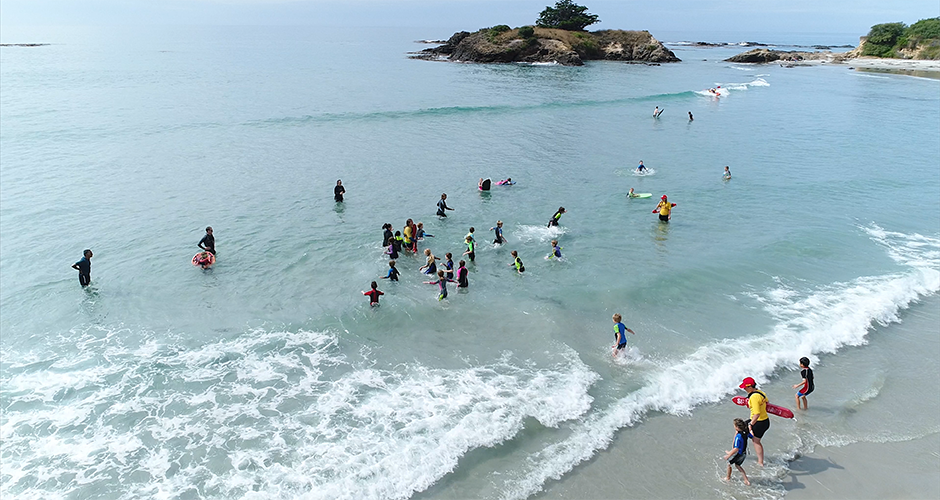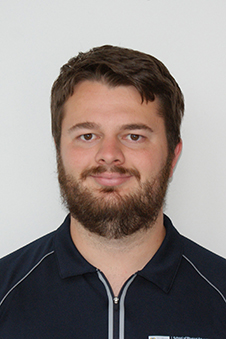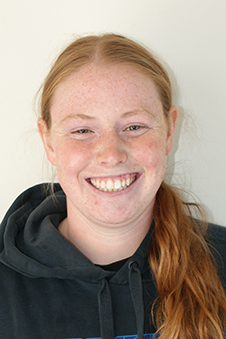
Combining water safety education in both a swimming pool and open water improves children’s aquatic skills and adaptability
Combining water safety education in both a swimming pool and open water improves children’s aquatic skills and adaptability, reducing the risk of drowning, a University of Otago-led study has found.

Kane Cocker.
Co-author Kane Cocker, PhD candidate in Otago’s School of Physical Education, Sport and Exercise Sciences, says New Zealand has a plethora of different aquatic environments, but many people have worryingly low water safety competency.
Despite this, limited research has been published about children’s competencies in open water, or how different practice environments can help the transfer of skills.
“A child’s ability to swim in a pool does not necessarily reflect their ability to adapt this skill to the variable conditions experienced in open water.
“We need to understand how the education of water safety competency can prepare a person for open water, as this is where most drownings happen,” he says.
To address this gap, the study, published in The Journal of Sport and Exercise Science, put 40 children through a 5-day water education programme in both a pool and open water.
The children were taught and assessed on continuous 5-minute swimming, floating and treading water, underwater swimming, and a water safety quiz.
The researchers assessed their competency in a harbour before, immediately after, and about one month after the education programme.
“We found the children’s skills improved after the programme, particularly in the floating and swimming tasks, and they were able to use what they learnt in the four assessed tasks and apply it to complete a self-rescue task,” Mr Cocker says.
“It was also great to see the children feeling more confident generally in their knowledge and abilities.
“This research is a valuable step in showing that combined pool and open water education is feasible and successful in developing competency to move in open water.”

Gabby Trotter-Dunn.
Co-author Gabrielle Trotter-Dunn, Master’s student in Otago’s School of Physical Education, Sport and Exercise Sciences, believes all children should have access to water safety education in a range of environments.
“Water safety education should be undertaken in environments that represent the real challenges of open water. Clearly, there are some barriers to this, the first ones being safety and costs, but overcoming these is achievable,” she says.
“Costs could be addressed by utilising existing access to environments – schools could incorporate programmes specific to their areas such as lakes, rivers, beaches, and harbours – and running holiday programmes or school camps would allow for short, concentrated blocks of learning and remove some of the transportation and organisational issues.
“Safety is a significant consideration, as open water education should only be undertaken by trained and knowledgeable education providers with appropriate supervision and risk management in place, however, external programs with trained instructors are offered by organisations such as Surf Life Saving New Zealand.”
She also believes any water safety development is better than none.
“If there is a small thing you can do to allow some open water experiences, as long as it is safe, do it,” she says.
*The researchers will be evaluating a larger scale version of the course this summer. Children from South Otago, Central Otago and North Otago will be invited to take part in the water safety course. For more information, please contact Professor Chris Button (chris.button@otago.ac.nz)
Publication details:
Chris Button, Tina van Duijn, Kane Cocker, Gabrielle Trotter-Dunn, Ludovic Seifert
The Journal of Sport and Exercise Science
For more information, please contact:
Ellie Rowley
Communications Adviser
University of Otago
Mob +64 21 278 8200
Email ellie.rowley@otago.ac.nz